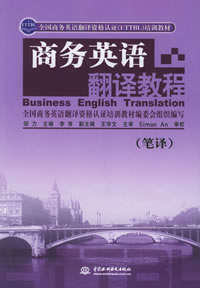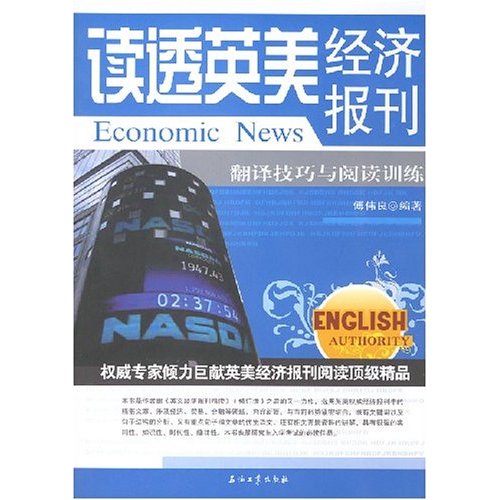11 Ways to Improve Your Writing and Your Business
 来源 : 语际翻译公司 转载请注明https://www.scientrans.com
来源 : 语际翻译公司 转载请注明https://www.scientrans.com∗本栏目部分文章内容来自互联网,部分已经过本站编辑和整理,如有版权事宜请联系Email/MSN jesczhao@hotmail.com
8. Cut unneeded words and prune windy phrases.
If your readers respond with "say what?" after finishing one of your memos or reports, you may be using businessese and doublespeak. Businessese is language we use not because it is clear or effective, but because we get into the habit of using it. Businessese promotes lazy, self-important writing. Consider these precise, everyday substitutes for businessese words
• Find out instead of ascertain
• Send out instead of disseminate
• Use instead of utilize
• Plan instead of strategize
• Best instead of optimum
Doublespeak is finding a complicated, highfalutin way of saying a simple phrase. Doublespeak also cares more about self-importance than clearly communicating with the reader. Here are some ways to simplify your language.
• Janitor instead of sanitation engineer
• Apparently instead of it would appear that
• Explain instead of furnish an explanation for
Be a ruthless gardener when it comes to weeding words. To paraphrase a popular commercial, "just say it."
9. Watch out for these four commonly misused words.
Some words in the English language take a constant beating in business correspondence. Be one of those writers who use them properly and pleasantly surprise your readers. Your conscientiousness may sell your next idea or product.
• That vs. which. Which often follows a comma and introduces a phrase that provides additional information not essential to the meaning of the sentence. That introduces a phrase that is essential to the meaning of the sentence.
The report, which is twenty pages long, is mandatory reading. (Which introduces additional, but unnecessary, information.)
The report that is twenty pages long is mandatory reading. (That points out a characteristic of the report and distinguishes it from a ten-page report.)
• Hopefully. This doesn't mean I hope. Hopefully, I'll finish the report by noon. Do you mean you'll finish the report in a hopeful frame of mind by noon? Or do you mean you hope you'll finish the report by noon? Say what you mean: I hope to finish the report by noon.
• Very. Avoid this lukewarm, unspecific adverb. I'm very happy that you elected me chairman of the Society for People with Super Sensitive Feet. Is very happy happier than just happy? Why not overjoyed or: I'm tickled to be the new chairman of the Society for People with Super Sensitive Feet.
10. Stress benefits, not features.
Everything you write in business, from sales letters to budget plans, is intended to elicit a response. You want someone to do something. In the sales letter, you want a client to grant you an appointment so that you can demonstrate your latest product. In the budget proposal, you want the board of directors to fund a new project in your department.
To be successful in business and in writing, you must persuade. Persuasive writing stresses benefits instead of features. Your reader doesn't care how many bells and whistles your product has. The reader wants to know what your product is going to do for him.
Consider the perfume industry. Perfumeries do not sell stuff that makes you smell nice (the feature). They sell romance -- how he will court her after she sprays it on (the benefit).
Feature: Our widget has three new attachments -- a cat feeder, a plant waterer, and a thermostat controller.
Benefit: Buy our widget with its three new attachments and, finally, relax on a vacation. Our widget works while you enjoy yourself. There's no need to worry; our widget will make sure your cat is fed, your plants are watered, and the temperature of your home is maintained at a constant, fuel-saving level.
11. Give your writing the conversation test.
After you have finished writing your memo or letter, read it aloud. Ask yourself if you would say to your reader what you are writing. Trust your ear. Wherever your writing is stuffy, wordy, or impersonal, rewrite it.
• Use contractions to warm-up your message and take the starch out of stiff sentences.
• Delete words, sentences, and phrases that do not add to your meaning.
• Make it personal. Speak directly to the reader, human to human. Remember people don't do business with businesses; they do business with people.
Copyright © 1992 The Roberts Group, Greensboro, North Carolina
Sherry Roberts is the author of Maud's House, a riotous novel that explores creativity and community.
合作伙伴:
维普资讯
动物营养学报
更多合作伙伴
友情链接: 金融翻译 材料科学翻译 地质翻译 医学翻译 地球科学翻译 环境翻译 理论与交叉科学翻译 生物翻译 农业翻译 物理翻译 人文科学翻译 文言文翻译 心理学翻译 金融翻译 工商管理翻译 法律翻译 经济翻译 传媒翻译 新闻翻译 报告翻译 网站翻译 石油翻译 机械翻译 航空航天翻译 电信翻译 医疗器械翻译 能源翻译 铁路翻译 化工翻译 标书翻译 专利翻译 汽车翻译 土木工程翻译 交通翻译 钢结构翻译 水利翻译
友情链接: 金融翻译 材料科学翻译 地质翻译 医学翻译 地球科学翻译 环境翻译 理论与交叉科学翻译 生物翻译 农业翻译 物理翻译 人文科学翻译 文言文翻译 心理学翻译 金融翻译 工商管理翻译 法律翻译 经济翻译 传媒翻译 新闻翻译 报告翻译 网站翻译 石油翻译 机械翻译 航空航天翻译 电信翻译 医疗器械翻译 能源翻译 铁路翻译 化工翻译 标书翻译 专利翻译 汽车翻译 土木工程翻译 交通翻译 钢结构翻译 水利翻译
北京语际翻译公司 版权所有
Copyright 2007,scientrans.com Inc. All Rights Reserved.
ICP备案号:京ICP备07007260


 RSS
RSS











